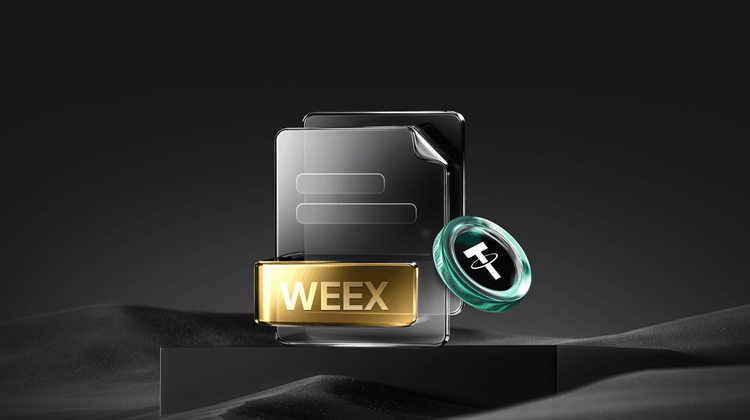Asian Stock Exchanges Push Back on Crypto Treasury Companies in 2025
Imagine your favorite company suddenly deciding to stash most of its cash in Bitcoin instead of traditional investments—sounds innovative, right? But in Asia, major stock exchanges are hitting the brakes on this trend, worried it could turn solid businesses into hollow shells. As of October 22, 2025, exchanges in key markets are tightening rules, making it tougher for firms to pivot into crypto hoarders. This shift highlights a growing tension between traditional finance and the wild world of digital assets, much like a cautious parent steering a thrill-seeking teen away from risky adventures.
Stock Exchanges in Hong Kong, India, and Australia Tighten Crypto Treasury Rules
Picture a company trying to list on a prestigious exchange, only to be turned away because its plan revolves around piling up cryptocurrencies. That’s the reality unfolding across Asia. In Hong Kong, the main exchange has turned down at least five firms aiming to become digital asset treasuries (DATs), enforcing strict guidelines against “cash companies” that mainly hold liquid assets like crypto. These rules aim to prevent outfits that look more like empty vessels than thriving enterprises.
Over in India, the Bombay Stock Exchange recently rejected a listing bid from a company that revealed intentions to funnel its funds into digital currencies. And in Australia, the local exchange prohibits firms from keeping more than half their balance sheets in cash-equivalent holdings, including cryptocurrencies, rendering full-fledged DAT models practically unfeasible. For those already listed and eyeing a crypto shift, officials suggest rethinking their approach, perhaps as exchange-traded funds to maintain legitimacy.
Recent data from 2025 shows DAT shares have continued their downward slide over the past quarter, trading below net asset values amid broader market corrections. This mirrors how volatile crypto markets can drag down even the most promising treasury strategies, backed by market analyses indicating a 15-20% drop in average DAT valuations this year alone.
Japan Stands Out as a Crypto Treasury Haven
While others clamp down, Japan offers a welcoming contrast, like an oasis in a regulatory desert. The country’s exchanges embrace DATs as long as there’s transparent disclosure, hosting around 14 publicly listed Bitcoin buyers as of mid-2025—the highest in Asia. One standout is a firm that’s climbed to become the world’s fourth-largest Bitcoin DAT, showcasing how supportive policies can fuel growth.
However, global index giants are proposing changes that could disrupt this. Plans to exclude DATs with over 50% crypto exposure from major indexes might stem the flow of passive investments, potentially cooling Japan’s edge. This development, discussed widely on Twitter with hashtags like #CryptoTreasury and #JapanDAT trending in October 2025, underscores the balancing act between innovation and stability.
Concerns Over Shell Companies and Crypto Treasury Legitimacy
At the heart of these rejections? Fears that companies are essentially peddling their listed status rather than building real operations. Regulators worry about firms morphing into mere investment vehicles, hoarding assets without the substance of ongoing business activities. It’s akin to buying a fancy car just for the license plate—flashy but fundamentally flawed.
This scrutiny ties into broader brand alignment strategies, where exchanges emphasize that listed entities must align with core values of transparency and operational integrity. By prioritizing companies with tangible business models, they foster trust and long-term investor confidence, ensuring the market remains a place for genuine growth rather than speculative gambles.
For those navigating the crypto space amid these changes, platforms like WEEX exchange stand out as a reliable partner. With its user-friendly interface, robust security features, and commitment to seamless trading, WEEX helps investors align their crypto strategies with regulatory realities, empowering both newcomers and pros to build diversified portfolios without the pitfalls of outdated treasury models.
Crypto Treasury Models Face Growing Challenges in 2025
What started as a bullish trend for DATs has hit rough waters. Researchers note that the allure of these models is fading, with share prices tumbling—take one prominent Asian DAT, whose stock has slumped amid market pullbacks. Industry voices suggest this “financial magic” era might be winding down, supported by 2025 data showing over 30% declines in key DAT metrics.
On Google, searches for “crypto treasury regulations in Asia” have spiked 40% this year, reflecting user curiosity about navigating these hurdles. Twitter buzz, including posts from finance influencers on October 20, 2025, highlights debates over whether DATs could rebound with better alignment to exchange rules. Latest updates include official statements from Asian regulators emphasizing stricter oversight to prevent misuse, ensuring crypto integration doesn’t undermine market integrity.
Even experts are signaling caution, comparing the DAT boom to a bursting bubble that once promised explosive growth but now demands more grounded approaches.
FAQ
What are digital asset treasuries (DATs) and why are they controversial?
DATs are companies that allocate a significant portion of their treasury to cryptocurrencies like Bitcoin, aiming to hedge against inflation or boost returns. They’re controversial because regulators see them as potential shell companies without real operations, risking market stability—much like investing in a high-stakes game without a safety net.
How has Japan’s approach to crypto treasuries differed from other Asian markets in 2025?
Japan has been more permissive, allowing DATs with clear disclosures and hosting the most in the region. This contrasts with stricter rules in places like Hong Kong and India, where exchanges block such models to maintain operational integrity, as evidenced by recent rejections and policy updates.
Can companies still pursue crypto investments despite these restrictions?
Yes, but with caveats—options like structuring as exchange-traded funds are encouraged. Latest 2025 data shows firms adapting by diversifying holdings to stay under 50% crypto thresholds, helping them align with regulations while tapping into digital asset potential.
You may also like

Holiday Season Markets: Understanding Low Liquidity and Trading Conditions
At WEEX, we recognize that the holiday season often brings a different trading experience for many users. As market participation slows, price behavior can feel less predictable and familiar trading rhythms may shift. For traders following AI news today or using AI trading tools, this period often highlights how market structure can influence model performance and short-term signals. Approaching these periods with clear expectations and a disciplined mindset can help traders better navigate seasonal market conditions.

Hyperliquid Whales Shift Strategies: BTC Longs Decline, ETH Shorts Dominate
Key Takeaways A significant reduction in Bitcoin long positions has been observed on Hyperliquid, with large holders decreasing…

Crypto Christmas Heist: Over $6 Million Lost, Trust Wallet Chrome Extension Wallet Hacked Analysis

Trust Wallet Browser Extension Security Incident Leads to Losses
Key Takeaways Trust Wallet identified a significant security breach in its browser extension version 2.68. Approximately over $6…

Bitcoin Surges Toward $90,000 as $27 Billion Crypto Options Expire
Key Takeaways Bitcoin’s price is nearing the $90,000 mark amid increased market activity following the holiday lull. The…

Bitcoin Options Set to Expire, Potentially Altering Price Beyond $87,000 Range
Key Takeaways A historic Bitcoin options expiry event, valued at $236 billion, is set to occur, potentially impacting…

Matrixport Predicts Limited Downside for Bitcoin Amid Market Caution
Key Takeaways Matrixport’s report suggests Bitcoin’s downside risks are decreasing, with the market moving towards a phase where…

Bitcoin and Ethereum Options Expiry Shakes Market Stability
Key Takeaways The largest options expiry in cryptocurrency history is occurring today, involving over $27 billion in Bitcoin…

Trust Wallet Hack Results in $3.5 Million Loss for Major Wallet Holder
Key Takeaways A significant Trust Wallet hack led to the theft of $3.5 million from an inactive wallet.…

BDXN Wallets Deposit $400,000 in Tokens to Multiple Exchanges
Key Takeaways BDXN project wallets have transferred approximately $400,000 worth of tokens to various exchanges. The transfers involve…

Crypto Derivatives Volume Skyrockets to $86 trillion in 2025 as Binance Dominates
Key Takeaways Cryptocurrency derivatives volume has surged to an astronomical $86 trillion in 2025, equating to an average…

Social Engineering in the Crypto Universe: Safeguarding Your Assets in 2025
Key Takeaways Social engineering, a psychological manipulation tactic, has been the leading cause of crypto asset theft in…

Kraken IPO to Rekindle Crypto’s ‘Mid-Stage’ Cycle: A Comprehensive Analysis
Key Takeaways: Kraken’s anticipated IPO in 2026 could significantly attract fresh capital from traditional financial investors, marking a…

Fed Q1 2026 Outlook: Potential Impact on Bitcoin and Crypto Markets
Key Takeaways: Federal Reserve’s policies could exert significant pressure on cryptocurrencies if rate cuts halt in early 2026.…

Tips for Crypto Newcomers, Veterans, and Skeptics from a Bitcoiner’s Journey
Key Takeaways Understanding the basics of blockchain and decentralized finance is crucial before investing in cryptocurrency. Newcomers should…

Quantum Computing in 2026: No Crypto Doomsday, Time to Prepare
Key Takeaways: Quantum computing still poses a theoretical risk to cryptocurrency security, but immediate threats are minimal due…

Trust Wallet to Reimburse $7 Million Lost in Christmas Hack: An Inside Job?
Key Takeaways Trust Wallet’s browser extension was compromised, leading to a $7 million loss on Christmas Day. The…

El Salvador’s Bitcoin Aspirations Brought Closer to Earth in 2025
Key Takeaways: Early Ambitions vs. Reality: El Salvador’s initial enthusiasm for Bitcoin adoption in 2021 faced significant challenges…
Holiday Season Markets: Understanding Low Liquidity and Trading Conditions
At WEEX, we recognize that the holiday season often brings a different trading experience for many users. As market participation slows, price behavior can feel less predictable and familiar trading rhythms may shift. For traders following AI news today or using AI trading tools, this period often highlights how market structure can influence model performance and short-term signals. Approaching these periods with clear expectations and a disciplined mindset can help traders better navigate seasonal market conditions.
Hyperliquid Whales Shift Strategies: BTC Longs Decline, ETH Shorts Dominate
Key Takeaways A significant reduction in Bitcoin long positions has been observed on Hyperliquid, with large holders decreasing…
Crypto Christmas Heist: Over $6 Million Lost, Trust Wallet Chrome Extension Wallet Hacked Analysis
Trust Wallet Browser Extension Security Incident Leads to Losses
Key Takeaways Trust Wallet identified a significant security breach in its browser extension version 2.68. Approximately over $6…
Bitcoin Surges Toward $90,000 as $27 Billion Crypto Options Expire
Key Takeaways Bitcoin’s price is nearing the $90,000 mark amid increased market activity following the holiday lull. The…
Bitcoin Options Set to Expire, Potentially Altering Price Beyond $87,000 Range
Key Takeaways A historic Bitcoin options expiry event, valued at $236 billion, is set to occur, potentially impacting…
Popular coins
Latest Crypto News
Customer Support:@weikecs
Business Cooperation:@weikecs
Quant Trading & MM:bd@weex.com
VIP Services:support@weex.com
